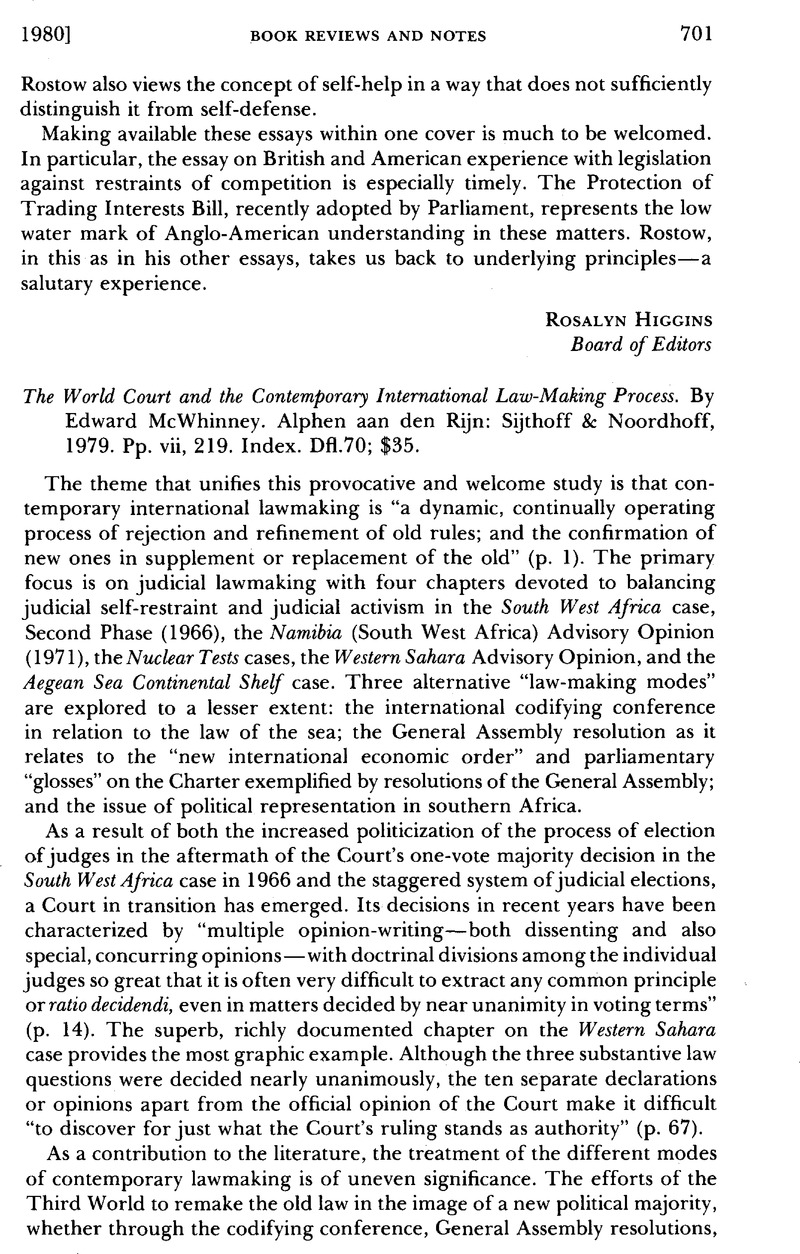No CrossRef data available.
Published online by Cambridge University Press: 27 February 2017

1 Lillich and White have suggested the influence of organizational variables on the Court’s jurisprudence. On the basis of interviews with many of the judges, they concluded that the practice during the deliberative process of writing extensive “notes” on a case provides part of the motivation for separate opinions. “Many judges stated frankly that the time invested …naturally engenders a desire to see one’s thoughts in print.” Lillich, & White, , The Deliberative Process of the International Court of Justice: A Preliminary Critique and Some Possible Reforms, 70 AJIL 28, 37 (1976)CrossRefGoogle Scholar. Rosenne has suggested that the desire of the Court to become involved in the political activities of the United Nations may well be due to some extent to the growing number of individuals elected to the Court “with a long history of personal involvement in UN affairs” and “who by way of experience and intellectual inclination possess an intangible psychological relationship with the UN.” Rosenne, The Composition of the Court, in 1 The Future of the International Court of Justice 388 (Gross ed. 1976).
2 The International Court of Justice, Rules of the Court (1978), reprinted in 73 AJIL 748 (1979), 17 ILM 1285 (1978). Article 95 provides, inter alia,“ a judge who wishes to record his concurrence or dissent without stating his reasons may do so in the form of a declaration.“ Article 107 makes the same provision for the advisory procedure. For a discussion of the expansion of the scope of the declaration in the Court’s practice, see Jhabvala, , Declarations by Judges of the International Court of Justice, 72 AJIL 830 (1978)CrossRefGoogle Scholar.